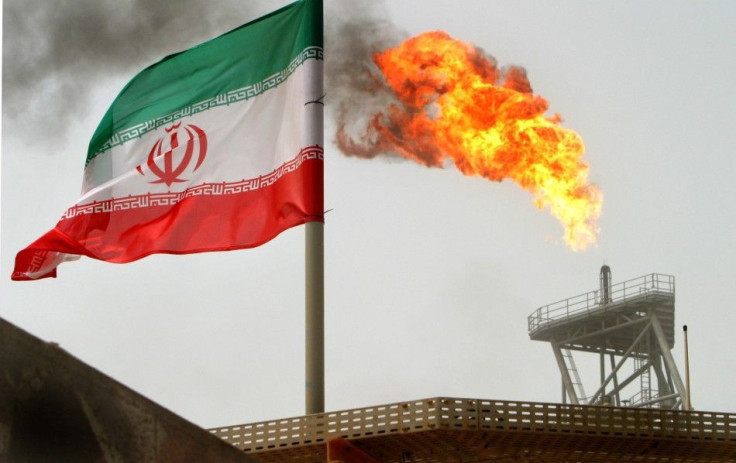Iran Sanctions: Why Japan and South Korea Must React

In an effort to get Iran to abandon its nuclear program, the United States has imposed new sanctions on the country's oil industry.
While the sanctions won't take effect for months, the measures have already put pressure on both the oil market and on the Islamic Republic's trade partners. Iran's biggest oil buyers will not react to the sanctions unilaterally.
Japan and South Korea, Iran's third and fifth biggest customers, respectively, are in unique positions among their peers. Each imports about 250,000 barrels of Iranian oil per day, and Japan also has a $2 billion investment in the Azadegan oil field in the Iranian desert. But Tokyo and Seoul's relationship with the United States is going to force them to make a choice: Ignore sanctions and damage that relationship, or buy oil at a premium from elsewhere, keeping the relationship intact.
The political cost for not doing what they can to support the sanctions would be quite high for both countries, said Gary Hufbauer, a senior fellow at the Peterson Institute for International Economics.
Japan has already pledged to start reducing... as soon as possible in an orderly manner, because nuclear development is something the world cannot shut its eyes to. To do so, Japan will probably increase the amount of oil it buys from Saudi Arabia and the United Arab Emirates, who are already the two biggest suppliers of Japan's petroleum (Iran is third).
South Korea has not moved as quickly. Worried about the effect that sanctions will have on the global market, the government said on Thursday that it was cautious about cutting any of its Iranian oil imports.
South Korea's position is different from the [European Union] ... and we would be cautious while checking possible supply shortages and domestic economic conditions, a government official told Platts. The government would hold negotiations sooner or later with the U.S. side on how much crude oil imports from Iran it will cut.
But the government might not have much of a say in the end, and South Korean lenders could influence an embargo even more than lawmakers.
The banks are going to be too frightened to violate the sanctions because of their relations with the U.S., Richard Weize, a senior fellow at the Hudson Institute, said about South Korea. The firms are going to make the calculations no matter what the government wants. It's not worth going afoul of the U.S. and Europe.
Like South Korea, Japan is also worried about how the market will be affected by the sanctions, but thinks that becoming less reliant on Iran in advance of a potentially tumultuous economic period is a good solution.
We're more concerned about the risk of the Iran problem becoming bigger and possibly leading to global economic instability through a possible increase in oil prices, Hiromichi Shirakawa, chief economist for Japan at Credit Suisse in Tokyo, told The Associated Press earlier this month.
Still, this could mean sacrificing business elsewhere for both countries. Total annual trade between Japan and Iran is about $11 billion, as of 2010, and while the partnership is lopsided, with Japan doing most of the buying, Iran does import Japanese cars and electronics.
South Korea also trades with Iran to nearly the same extent. But decreasing oil purchases could prohibit the country's booming construction industry from signing future contracts with the Islamic Republic.
They'll pay a cost one way or another -- either to Iran or the U.S, said Hufbauer.
Maintaining a good relationship with the U.S. is worth it, especially now that President Barack Obama has pledged to send more American troops to the Asia-Pacific region, which Washington believes will foster economic growth and stability for its trade partners in the area.
China's Gain
The new American sanctions pose less of a problem for the rest of the top five purchasers of Iranian oil. Because of its current relationship with the U.S., China, which buys about 500,000 barrels a day (close to 20 percent of Iran's oil output), doesn't stand to lose much diplomatically. The same goes for India, which is already planning to buy more oil from Iran as soon as Iran starts losing customers.
It will be our endeavor in [the] future to tap the Iran source fully because the terms are fairly favorable, India's oil minister, S. Jaipal Reddy, said last Monday. Iran was very accommodative.
Italy, the top European purchaser of Iranian crude oil, doesn't have much of a say in the matter thanks to new European Union sanctions. On Jan. 23, the EU unanimously passed a new embargo that prohibits any new oil contract between member states and Iran and voids all existing contracts by June.
India and China both stand to gain from Iran's loss. With Japan and South Korea buying less, and Europe conceivably buying no Iranian oil at all (some analysts think that the EU will cut back by 80 percent, and not the full 100 percent as prescribed by the sanctions), Iran will have to sell crude at a discount to attract more business.
China is not affected by the European sanctions, said the Hudson Institute's Seth Cropsey. What happens when those are imposed? [Iran will] just cut the price and sell to the Chinese.
Probably, Japan will pay five to 10 percent more for the oil it buys from Saudi Arabia and the UAE, Hufbauer said. The Iranians will sell for five to 10 percent less.
© Copyright IBTimes 2024. All rights reserved.





















